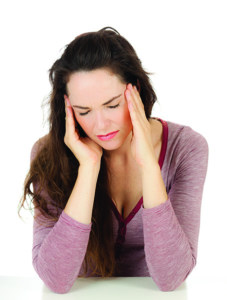
If you suffer from migraines, you might want to pay attention to your sleep patterns to predict when one will arrive.
A study conducted by Suzanne Bertisch, a physician and clinical investigator in the Division of Sleep and Circadian Disorder at Brigham and Women’s Hospital in Boston, and her team wanted to learn more about the ways in which sleep and migraines are linked, according to a Jan. 2 MedicalNewsToday article.
“I became interested in this topic because people with migraines are frequently referred to me in the sleep clinic for help with treating their insomnia,” she said.
“Anyone treating these people wants to be able to counsel them on what to do to decrease their risk of migraine, but the literature is unclear on what kinds of sleep interventions may be helpful.”
After examining the sleep patterns of 98 adults who experienced frequent migraines and adjusting for potential migraine triggers, such as caffeine, alcohol, exercise, stress levels and day of the week, her team found that the amount of sleep participants got was less of a factor than the quality, or how well a person slept.
“Sleep is multidimensional,” Bertisch said. “When we looked at certain aspects, we found that low sleep efficiency, which is the amount of time you’re awake in bed when you’re trying to sleep, was associated with (migraine) not on the day immediately following, but on the day after that.”
Those who experienced fragmented sleep had a 39% higher risk of a migraine on the second day.
The study was published Dec. 16 in the journal Neurology.




